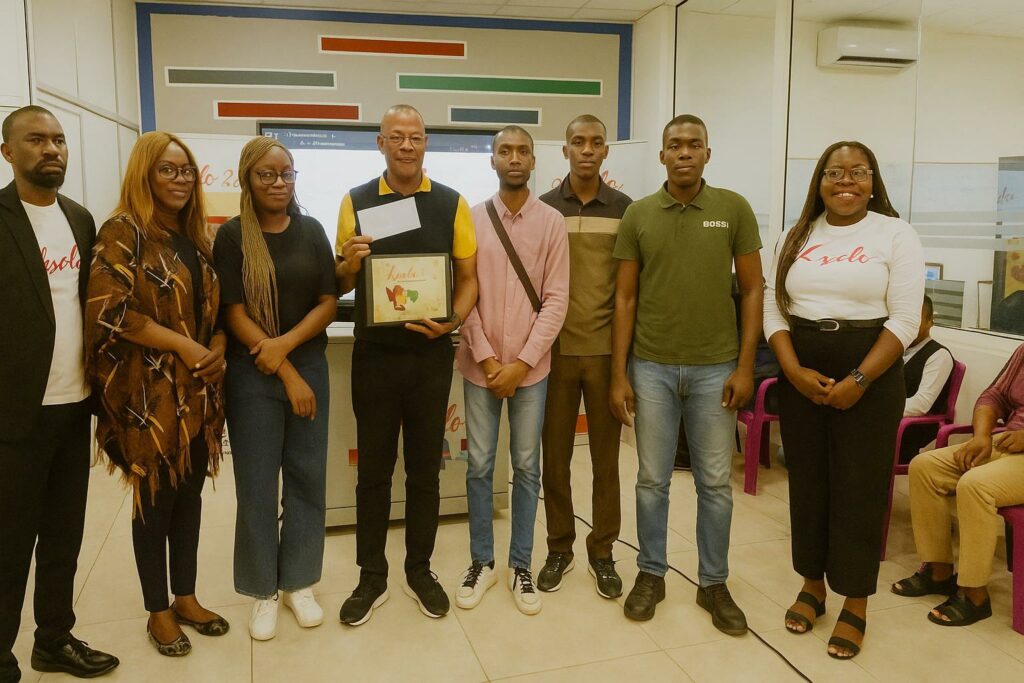A Home-Grown Victory in the Capital
In the luminous halls of central Brazzaville, the air was pierced by applause as Roger Mankindou, Miveck Rhignanga, Lutther Mabiala, Davy Madassou and Amadou Samanke lifted the inaugural trophy of the Lissolo Challenge. The five teammates, competing under the banner “Winner Premier”, each walked away with 50,000 FCFA, a modest sum in accounting terms yet a powerful symbol of the country’s nascent creative economy. Their success was not achieved on a football pitch but around a board that maps the Republic of Congo in all its linguistic, ethnographic and economic contours: Lissolo 2.0.
“If our youth wish to learn the nation’s history, they can simply sit at the table and play,” urged team captain Roger Mankindou immediately after the final round. His call resonated through a youthful audience that oscillated between e-sports and smartphone apps yet paused, on this occasion, to embrace an analogue adventure conceived and produced on Congolese soil.
Lissolo 2.0: From Family Table to Cultural Catalyst
Designer Kris Brochec, who also curated the broader ‘Lissolo Days’, described the project as “a collaborative, participatory family adventure that forges community.” In her view, the game performs a dual function: entertainment and transmission of heritage. Players travel symbolically from the rainforests of the Sangha to the vibrant markets of Pointe-Noire, answering questions or performing tasks that unlock layers of collective memory.
Project manager Hugues Wilson contextualised the mechanics: by weaving geography, proverbs, milestones of political history and snapshots of today’s socio-economic landscape, Lissolo 2.0 animates the classroom without feeling pedagogical. The Challenge, Wilson added, was envisioned as an intergenerational bridge where grandparents, parents and adolescents negotiate strategy together, thereby normalising dialogue that often struggles to cross age boundaries.
Creative Industries and the Promise of Local Content
The Ministry of Culture has repeatedly underscored the strategic value of Congolese intellectual property in diversifying an economy historically reliant on hydrocarbons. While no official partnership was announced at this first edition, the presence of ministry observers hinted at a broader policy horizon in which home-grown content such as Lissolo 2.0 could seek fiscal incentives and export corridors within the Central African Economic and Monetary Community.
Economic stakes extend beyond retail sales. Graphic designers, printers, community managers and event planners assembled for the Challenge, providing a tangible illustration of a value chain that keeps revenue circulating locally. For urban youth facing high under-employment, such micro-industries can represent an accessible entry point into entrepreneurship.
Pedagogy, Compliance and Intellectual Property
The educational dimension raises legal questions that the organisers addressed proactively. All historical facts embedded in the game were vetted against publicly available curricula to avoid defamation or politically sensitive inaccuracies. Moreover, trademark registration of “Lissolo” at the African Intellectual Property Organisation safeguards the brand while encouraging responsible franchising.
Local jurists consulted during the preparatory phase emphasised the importance of compliance with the regional competition framework, notably Article 37 of the CEMAC Competition Code, which prevents the abuse of a dominant position in cultural markets. By opening tournament slots to independent teams, the organisers demonstrated an early commitment to transparent governance.
Soft Power and the Road Ahead
Congo-Brazzaville has long projected its cultural identity through music and literature; a board game may appear modest by comparison. Yet the resonant success of the Lissolo Challenge suggests a new vector of soft power situated at the crossroads of ludic design and public diplomacy. Plans are already being sketched for a sub-regional circuit that could take the competition to Yaoundé, Libreville and Bangui, carrying with it an image of Congolese creativity nourished, not diminished, by digital modernity.
For the five champions, the immediate future involves mentoring secondary-school clubs eager to master the Lissolo strategy. For the wider community, the event stands as a reminder that cultural innovation need not rely exclusively on imported formats. In revisiting local narratives with contemporary flair, Lissolo 2.0 positions leisure as a civic act: to play, in this context, is also to remember, to learn and to belong.

